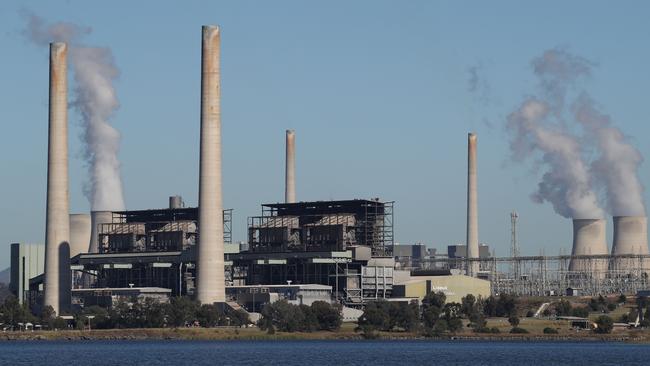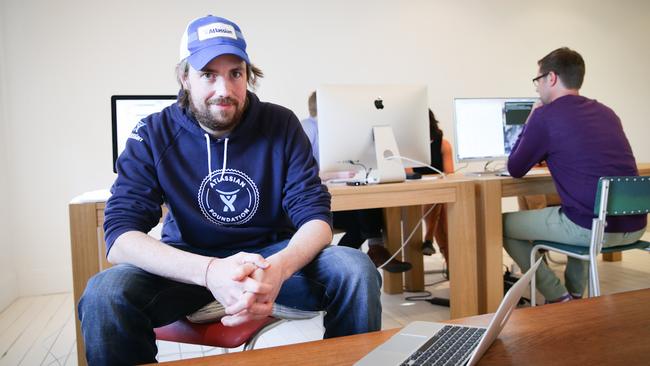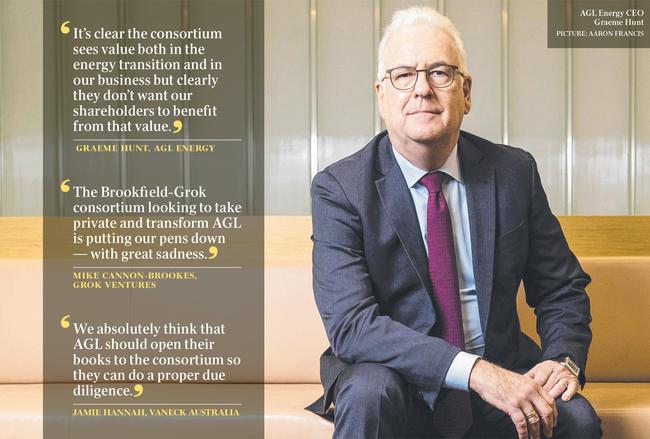AGL Energy investors slam rejection of takeover bid from Mike Cannon-Brookes and Brookfield
AGL Energy shareholders have questioned the power giant’s immediate rejection of an increased takeover bid from Mike Cannon-Brookes and his partner Brookfield.

AGL Energy shareholders have questioned the power giant’s immediate rejection of an increased takeover bid from tech billionaire Mike Cannon-Brookes and his partner Brookfield, amid doubts about whether a plan to split the company in two will deliver better returns for investors.
The new $8.1bn bid, revealed by The Australian on Sunday night, was rebuffed by AGL’s board in a move that prompted the investment consortium to put its takeover ambitions on hold because it had failed to gain due diligence or enter into talks with the power giant’s board.
But several major shareholders said AGL may have been too hasty in its approach, given uncertainties around the company’s own demerger scheme, and exploratory talks with the high-profile suitors may have been a better path for the 180-year-old operator.
Top 10 shareholder VanEck said on Monday the company should have engaged and considered some form of due diligence once the improved $8.25 a share buyout tilt was tabled, after last week backing AGL for rejecting the initial $7.50 a share offer.
“We absolutely think that AGL should open their books to the consortium so they can do a proper due diligence,” VanEck Australia’s deputy head of investments and capital markets, Jamie Hannah, told The Australian.

Washington H Soul Pattinson, which has a major stake in AGL, also queried the stance taken by AGL. “It’s possibly something that needs a bit more thought from the board,” Soul Patts chief executive Todd Barlow said. “I think you are seeing smaller premiums being offered because it is being weighed up against the risks that you are seeing with the demerger.”
While Mr Cannon-Brookes took to Twitter to declare it was “pens down” on the takeover bid, sources close to the billionaire said the consortium might re-emerge with another bid given uncertainty among shareholders over the demerger plan.
It remains in talks with several of the company’s investors.
AGL is pushing ahead with its proposed demerger, but with further details of the split not due until May – ahead of a shareholder vote in June – VanEck said the company needed to keep its options open and talks could have resulted in another higher offer.
“We’re happy it’s an improved offer. Based on our net present value calculations, and where we think the valuation is on a five to 10-year time frame, we still think it’s below that,” Mr Hannah said.
“But what’s going to happen is there’s going to be a vote on the demerger coming up and shareholders need to be able to decide whether or not the demerger is in their best interest, whether or not the existing structure of AGL is in their best interest or if the consortium is in their best interest … at the moment, there’s not enough information to say which of these options is going to be the best in five to 10 years’ time for people.”
The consortium was “putting our pens down with great sadness”, Mr Cannon-Brookes wrote in a post on Twitter on Sunday night. “This weekend, the board rejected our raised offer of $8.25, 46 per cent more than the price of $5.55 about 90 days ago.
“Our path was the world’s biggest decarbonisation project.
“The board are proceeding with their demerger path. This path is a terrible outcome for shareholders, taxpayers, customers, Australia and the planet we all share. Shareholders now vote on that path.”

Broker Morgans said the increased bid was reasonable given the limited life of the power giant’s coal assets. “I would have thought that offer would have made the board think more carefully about it. It’s not overly generous but probably reasonable given the limited life of the coal fleet,” Morgans analyst Max Vickerson said.
The investment duo immediately walked away from the bid once it was rejected. However, the move may have partly been a ploy to put pressure on AGL ahead of its shareholder vote.
“I‘m not surprised to hear that the consortium is walking away. It’s hard to see someone bidding hard for assets they’ve said they want to close,” Mr Vickerson said, referring to the consortium’s plan to close AGL coal plants by 2030.
MST Marquee also questioned the lack of engagement by AGL’s board. “No great surprise to see Brookfield and Grok return with a $8.25/share bid. I am a little surprised to not see AGL at least engage with it,” MST analyst Mark Samter said.
Still, AGL disputed the value of the increased bid and said it was only at a 15 per cent premium to its closing price on February 18, the final trading day before the consortium’s first $7.50 a share bid was revealed.
“It’s clear the consortium sees value both in the energy transition and in our business but clearly they don’t want our shareholders to benefit from that value,” AGL chief executive Graeme Hunt said. “That’s why they’ve jumped in now ahead of the demerger and want to do a transaction at a level which is just not in our shareholders’ best interests.”
Mr Hunt has previously said the consortium would need to boost its takeover bid by at least $1bn to be taken seriously and has also slammed its early coal retirement plan as unfeasible.
Shareholders are set to vote on a plan to split AGL into a green retailer named AGL Australia seeking to be fully carbon-neutral by 2040, and a coal-dominated generator, Accel Energy, targeting net-zero emissions by 2047.
AGL appeared to be unimpressed by several features of the second bid, noting it included a requirement that it effectively commit now to recommend the higher offer, while the Brookfield consortium also issued a draft confidentiality access deed which covered exclusivity and cost reimbursement obligations for AGL.
Brookfield was funding 80 per cent of the overall bid, with Mr Cannon-Brookes the balance.
The scheme to quit coal in just eight years and pour billions into renewable energy and storage generation was lauded by climate-conscious investors.
AGL fell 1.75 per cent to $7.30.




To join the conversation, please log in. Don't have an account? Register
Join the conversation, you are commenting as Logout